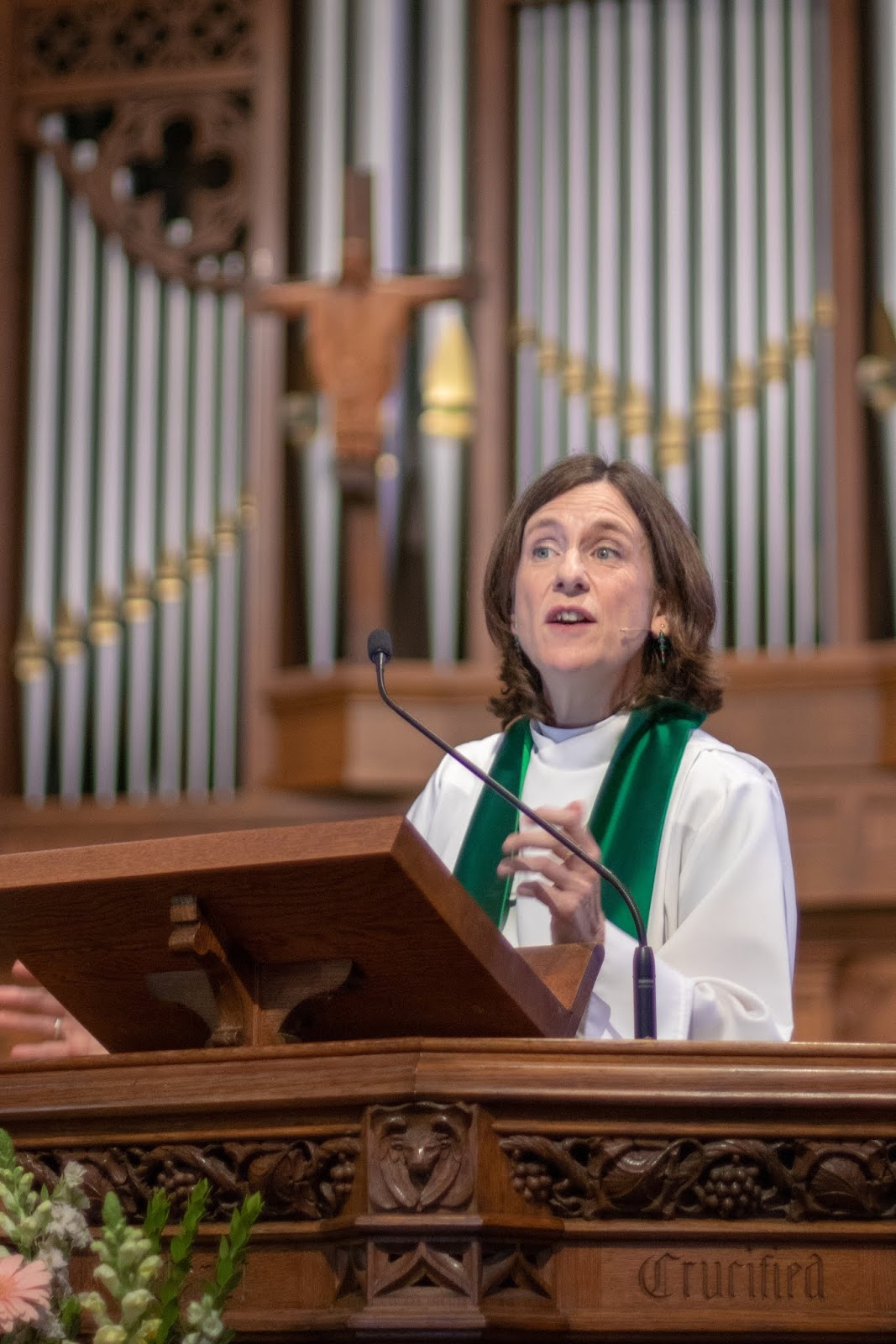
Christmas Day
Penelope Bridges
Alleluia, unto us a child is born.
O come, let us adore him.
Most of you probably don’t attend both Midnight Mass and Christmas Day, but if you do, you know that the two services couldn’t be more different. Last night was full of mystery and anticipation: the candles we held up as we sang Silent Night glowed in the darkened church; the familiar words of Luke’s nativity story took us back to a dirty and dimly lit stable of long ago; we were on the brink of a world-transforming event. This cathedral was a point of light in the darkness of the city, as the good news of Christ’s birth is a point of light in a dark and dangerous world.
This morning we stand in the light of day, grateful for our San Diego sunshine. Our celebration has a very different mood. Stockings have been emptied, maybe presents already unwrapped; all that anticipation has evaporated in the fulfillment of promises – or the disappointment of getting something other than you had wanted. Christmas has fully arrived; in the secular culture it’s already over: the stores are as I speak restocking their shelves with Valentines Day merchandise. But here, today, it is Christmas. Joy to the world, the Lord is come. Done and dusted, as my mother-in-law would have said.
In the beloved Christmas hymn by Phillips Brooks, we sing, “The dark night wakes, the glory breaks, and Christmas comes once more.” Today the light of Christ is shining out, and the immortal preface to John’s Gospel takes that statement of faith and riffs on it. “The light shines in the darkness, and the darkness did not overcome it. The true light, which enlightens everyone, was coming into the world.” We are here today because that light is still shining. 2000 years after that little family found refuge in a stable, the light that was kindled in Bethlehem continues to shine, even as the land where Jesus was born continues to suffer from the tragic abomination of war. There isn’t much Christmas celebration in Bethlehem today. Goodness knows, there is plenty of darkness still.
I recently watched a show on Netflix: it’s an Icelandic police mystery called The Valhalla Murders. It’s full of darkness. The story itself is dark, with threads of murder, child abuse, and corruption running through it, but the show was also literally dark. It seemed like it was never fully daylight. There is no color: everyone’s wearing black, and outside, the snow provides a monochrome background. When the detectives enter a building to search, they never turn the lights on but only wield tiny flashlights that barely show them what is directly in front of them.
I wanted to yell at the characters: get a bigger flashlight, for goodness sake! It was a great relief to arrive at the final scenes, which were flooded with light after the mystery was solved and the justice was done. The imagery was not subtle. When we share enough light, the darkness recedes. Darkness cannot vanquish light, cannot overcome it, cannot even comprehend it. The light always wins. And that’s a good thing, right?
I want to draw a distinction between spiritual darkness and physical darkness. There is good reason to preserve the darkness of night in our world. Light pollution is an unanticipated side-effect of technological progress. The more we light our cities and homes, the less we can see of the stars, and the more confused other parts of God’s creation will become. If we lose sight of the stars, we will be in danger of losing sight of our place in relation to the rest of the universe.
Imagine if the wise men had not been able to see the star that led them to Bethlehem; if the shepherds had not been able to see the light of the angels announcing the good news of the Messiah’s birth. The International Dark Skies Association encourages communities to explore ways to preserve the full darkness of night, so that our view of starlight is preserved and we retain our wonder at the glory of God’s immense work of art.
I recently learned a new word: when Jewish families are celebrating Hanukkah, as you know, they light an additional candle on the Menorah each night. It’s very similar to our custom of lighting an additional candle each Sunday on the Advent wreath. But what I learned is that there is a special name for the candle that lights the other candles on the Menorah. It’s called the Shamash. The Shamash has the blessing and responsibility to spread the light, to share it so that it grows and pushes the darkness back. I believe that we are called to be the Shamash of the world, to take on that blessing and responsibility, to share the light.
Underneath all the imagery, the beauty of the season, and the anticipation of a new year, there lies a very simple statement of truth, and it’s all we really need to hear this morning. It’s this: that the eternal Word of God came into the world as a human being, to live and die as one of us, to prove God’s unconditional love for every person. That’s it. That’s the Christmas message. Everything else is just decoration.
The mystic, Howard Thurman, gives us our marching orders in his poem, The Work of Christmas.
When the song of the angels is stilled,
When the star in the sky is gone,
When the kings and princes are home,
When the shepherds are back with their flock,
The work of Christmas begins:
To find the lost,
To heal the broken,
To feed the hungry,
To release the prisoner,
To rebuild the nations,
To bring peace among others,
To make music in the heart.
Alleluia, unto us a Child is born.
O come, let us adore Him.

